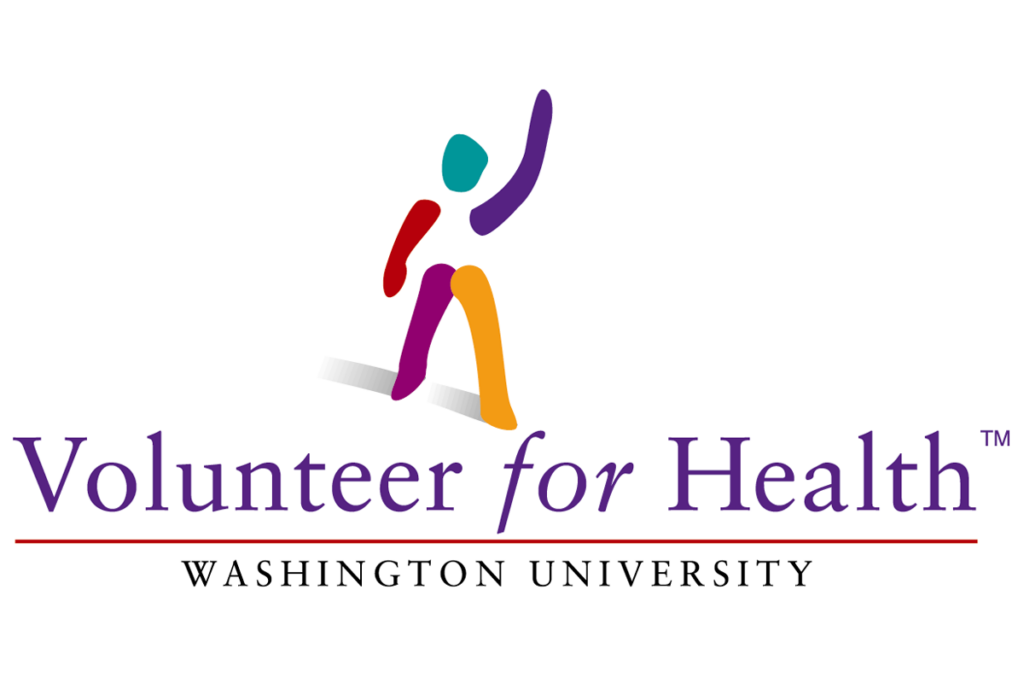At Washington University (WU), more than 1,000 clinical studies begin every year.
The ability of a study to recruit participants is often the deciding factor of the project’s success.
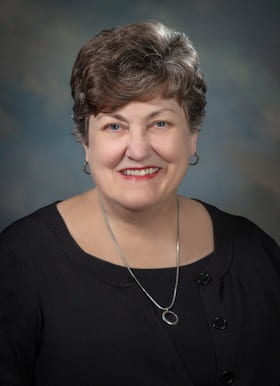
Volunteer for Health was developed by Janet B. McGill, MD, MA, FACE, Professor of Medicine in the Division of Endocrinology, Metabolism & Lipid Research in the late 1990’s as a way to provide a diabetic database for her research. It was called Volunteer for Health (VFH) as this was a volunteer group of people/patients who volunteered to participate in those studies. Eventually, this database was converted into an online research registry, now known as the Research Participant Registry (RPR) that consists of about 20,000 participants. VFH is a no-cost service thanks in part to funding provided by the Institute of Clinical and Translational Sciences (ICTS). This support allows Principal Investigators (PIs) to work with VFH on email blasts, social media posts, posters, recruitment plans and more.
The Recruitment Enhancement Core (REC) of the ICTS, otherwise known as VFH, is located in the Regulatory Support Center and is a unique service that helps ICTS investigators meet and exceed study recruitment targets. The REC/VFH take responsibility for enhancing recruitment university wide, by passing a steady stream of qualified individuals from the RPR to the PIs and study coordinators. REC supports PIs by freeing up their time so they can focus on consenting and enrolling participants for their studies.
As part of VFH, Teresa Arb currently oversees the VFH office that powers the RPR and says that the Registry gives individuals the opportunity to participate in clinical studies and play a vital role in improving health care. The RPR helps researchers find people who are interested and meet clinical study qualifications. VFH can also connect participants with studies at other ICTS partner institutions who collaborate with Washington University in clinical research. The VFH staff play a vital role in helping PIs meet their recruitment goals within the study timeline.
I have PIs that come to me at grant submission and need a letter of support. Once their research is funded they come back to VFH/REC for assistance with recruitment. It’s key that PIs and study teams reach out at the beginning of the study vs. wait until the study is opened, especially if they’re looking for participation from the community.
Teresa Arb
Assoc Dir Clinical Research, CCS
VFH shares that they are always looking to find new ways to market and reach into the community and help match the researchers with the study group they are looking for regarding race, demographics, or diagnosis. They are always looking for a more diverse group of volunteers in which to be able to enroll in clinical trials.
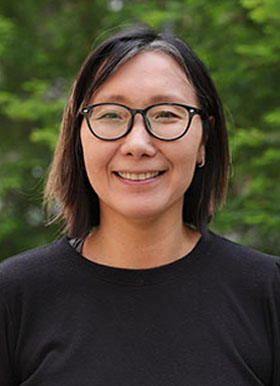
“The Urban League here in St. Louis has been very helpful to us. James Clark, Vice President of the Division of Public Safety and Community at the Urban League, has been a good partner in increasing our clinical trial visibility but also in educating the community about the benefits of participating in clinical trials.”
Yi Zhang, RN, JD
Assistant Dean and Administrative Director of Clinical Studies

Methods used by VFH to reach potential participants include the StudySearch website, Peachjar, radio/print/TV advertising, collaborations with community stakeholders, and social media pages. The VFH/RPR Facebook page has more than 4,700 followers. VFH can also reach potential new volunteers through Epic electronic medical records. Through a collaboration with the Epic1 research team, PIs now have the ability to let patients know through MyChart about clinical studies that might be relevant to them. Patients will find this information on their MyChart account and can even register for the RPR simply by clicking a link in their MyChart patient portal.
Volunteer for Health Success Stories
As VFH has a large participant base, many of WashU’s researchers rely on them for study recruitment assistance. Here are just a few examples of successes due in part to collaboration with VFH.
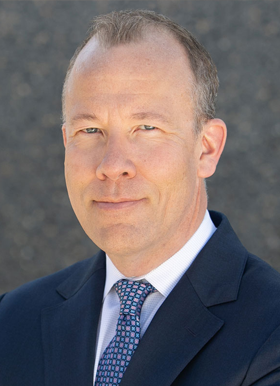
Eric Lenze, MD, Chair and Professor of Psychiatry, Washington University School of Medicine was seeking 290 participants between 65-84 years of age, who had noticed changes in memory with ageing for his study, Remediating Age Related Cognitive Decline in Older Adults.
After several years they realized they were not meeting their goals for Caucasian males and more specifically, African American males and females. They contacted REC for assistance; REC queried and emailed their database members, shared on social media to connect to their followers, and engaged the community with flyers placed in key areas such as barber and beauty shops, bingo halls, libraries and churches. Through REC’s help and suggestions, Dr. Lenze was able to increase numbers for those demographics to meet study recruitment goals.
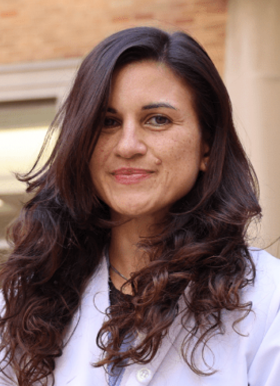
Alana Desai, MD, Clinical Associate Professor of Urology, University of Washington School of Medicine (formerly at Washington University School of Medicine) was seeking 400 participants for a randomized clinical trial to investigate the impact of increased fluid intake and increased urine output on the recurrence rate of urinary stone disease in adults and children.
The PUSH study engaged REC at the beginning of the trial to supplement the recruitment efforts of the study team. Through close partnership with the study team and REC, this study was able to implement several strategic recruitment efforts including “email blasting” 17,000 participants registered with the RPR, social media posts, and ads in BJC media outlets. The combined efforts of the study team and the REC lead the WashU site to be 1st in the country for recruitment.
Through these efforts the study was able to enroll 480 participants and randomize 376. The team completed the study as the lead recruiter thanks in part due to VFH.
Laura Bierut, MD, Alumni Endowed Professor of Psychiatry, Washington University School of Medicine was seeking participants for Washington University’s All of Us Research Program (AofU). The purpose of the NIH All of Us study is to accelerate health research and medical breakthroughs, enabling individual prevention, treatment, and care for ‘all of us’. The program invites one million people across the U.S. to help build one of the most diverse health databases with a goal to find ways to treat and prevent diseases.
The AofU project engaged REC at the beginning of the program to maximize the efforts of the national research program with local recruitment efforts. The goal of the project was to recruit 200 participants from the WU/BJC healthcare systems.
Through close collaboration with the study team and REC, this program was able to implement strategic targeted recruitment efforts including “email blasting” participants from the RPR that had both an email address available and a BJC HealthCare or Washington University health record within Epic. Participants were randomized to receive four different advertisements to test the effectiveness of each.
“Volunteer for Health was integral to our success as a pilot site for the All of Us Research Program” said Tricia Salyer, MEd, Clinical Research Supervisor. With the help of VFH, we were able to implement a targeted recruitment effort focusing on over 9,000 participants from the RPR. By using the RPR, we were able to facilitate the registration of 566 participants into All of Us within only 6 weeks and were the lead recruitment site for the pilot program.”
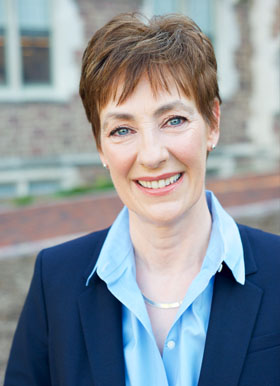
“Our success would not have been possible without help from Volunteer for Health. It is an incredible resource that has greatly benefited my research studies and that is essential to the WU research community”
Laura Bierut, MD
Alex Ramsey, PhD, Associate Professor of Psychiatry, Washington University School of Medicine was seeking participants for a study to better understand the barriers, facilitators, and leverage points related to administration and receipt of smoking cessation medications for hospitalized smokers in order to improve smoking cessation treatment.
REC was contacted for assistance in filling a workshop to enroll 10-15 individuals who were patients at Barnes-Jewish Hospital (between the years 2010 -2017) and who smoked cigarettes during that time. REC developed recruitment materials, searched the RPR, sent email blasts, posted study information on Facebook, gave guidance on writing a phone script, screened participants by phone, and scheduled participants for the workshop.
REC team members exceeded the minimum enrollment numbers and demographic goals. They were able to identify, screen, and schedule 20 participants for the workshop in less than a week.
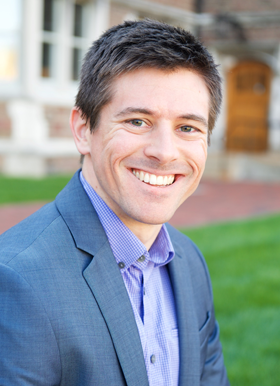
“Thanks to Volunteer for Health, we were able to achieve our recruitment and enrollment goals across multiple trials by engaging participants with a range of medical and social needs in the community. Everything from study advertising to phone screening was well-executed by VFH staff, making the recruitment process very smooth for our research team. VFH staff were highly responsive to our evolving needs and helped to ensure participation from representative groups. This robust support from VFH was a critical buffer in the context of launching our trials in the COVID era as recruitment was a universal challenge for research.”
Alex Ramsey, PhD
